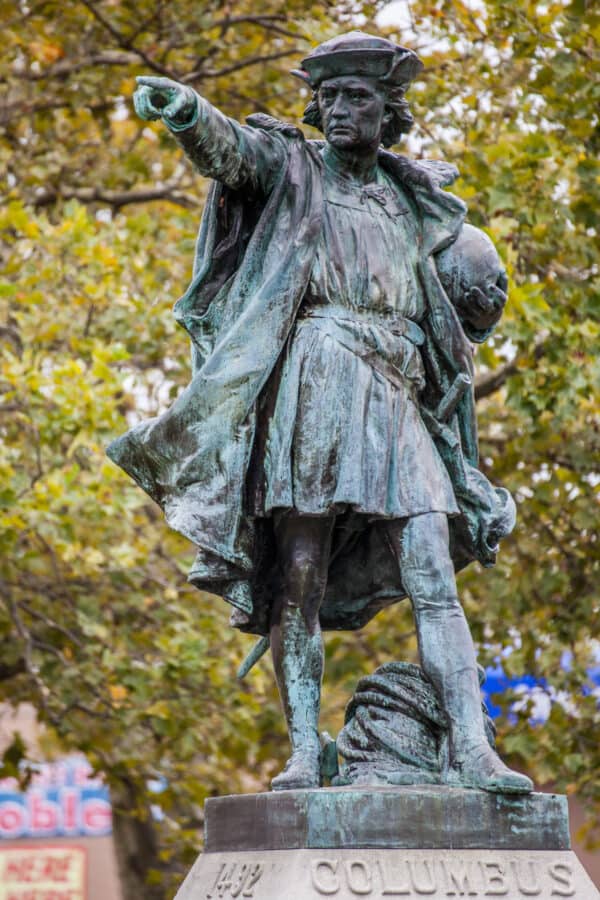The Controversy
Protesters are tearing down historical statues, trying to diminish the history of Western civilization. History books, teachers, and professors denigrate famous men who once served as virtuous exemplars.
One target of revisionists is Christopher Columbus (1451–1506). After discovering New World, European immigrants flooded into North and South America. Some revisionists teach that Columbus ruined entire civilizations.
The History
Christopher Columbus was the son of a merchant. He refused to follow in his father’s footsteps and was around 14 years old when he first took to the sea. Over the next two decades, Columbus spent much time aboard various vessels. He gained tremendous nautical experience. Columbus sailed the Mediterranean and the coastlines of West Africa and Iceland. Once, he was in a naval battle in which his ship sunk, forcing him to swim for hours to the shore.
Columbus had many challenges throughout his life. While struggling financially, he taught himself several languages. He became obsessed with the idea of reaching India by sailing west. He determined to test his idea.
With Spanish queen Isabella’s financial help, Columbus set sail across the Atlantic, searching for the East and India. Eventually, they made landfall. Columbus called the natives “Indios.” When he returned to Spain, the king declared Columbus “Admiral of the Seven Seas” and “Viceroy of the Indies.”
Word quickly spread across the continent about these new lands.
Columbus made three voyages to the “New World.” On the second voyage, settlers accused Columbus of being a tyrant and cruel to the natives. He wrecked his ship on his last trip, stranding him for more than a year on Jamaica.
The Holiday
The first celebration of Columbus in the United States occurred in 1792. This was the 300th anniversary of Columbus’s first voyage. In 1892, President Benjamin Harrison issued a proclamation honoring the 400th anniversary of Columbus’s first voyage. 45 years later, President Franklin Roosevelt proclaimed Columbus Day a federal holiday.
Christopher Columbus | The Man and His Legacy
Columbus had the vision to explore a new route to India. His discovery radically changed world history, increasing international trade, and the modern world as we know it.
He was a man with a vision who had the capability of sharing that vision with others. Columbus convinced his sailors to continue their voyage long after most of them gave up hope of finding land. He was also a man of courage willing to follow his dream even unto death.
Dor-Ner sums up the man in this way: “The story of Columbus is important because he is a thoroughly modern hero—a man complex, imperfect, and fallible, who not only motivated history but was swept by it, and whose deeds bear little witness to his intentions. History is often the chronicle of unintended consequences; as such, it teaches us more about our limitations than our greatness.”
Christopher Columbus | The Mystery of the Man
Before judging Christopher Columbus, we should consider the times in which he lived. Life in the 15th century was harsh, brutal, and short. A different set of values also prevailed. Slavery, torture, and colonization were commonplace, and Columbus was a man of his time.
In many respects, Columbus is a puzzle. Before condemning Columbus, we should remember that Columbus was “complex, imperfect, and fallible.” In other words, he was a human being.
We celebrate Columbus Day because Columbus was courageous. Most of us have dreams but rarely do we take risks to make our dreams reality. Columbus risked his life and reputation on his vision. Although he did not find a trade route to India, he expanded trade in a New World.
